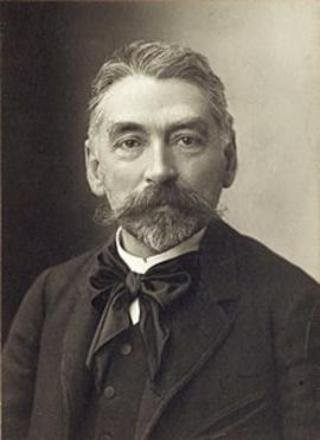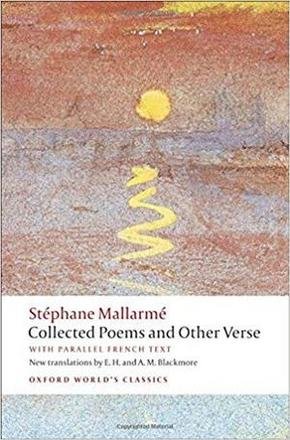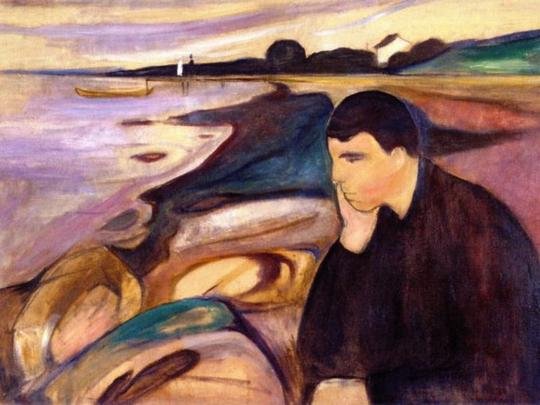ADSactly Literature: Stéphane Mallarmé, Renewer of the Aesthetic Canon of Poetry (Part I)

In this blog I started a series on poetic modernity, which I now take up again with this outstanding figure. Together with Baudelaire and Rimbaud, Mallarmé is one of the three great columns of thought and art that are catalysts of poetic modernity. He is considered to be primarily responsible for the birth of Symbolism as an aesthetic movement, although he did not call himself a symbolist. Before going on to deal with his work, poetic vision and contributions, we will first give some basic biographical information.
Stéphane Mallarmé (France, 1842-1898) went to London from a very young age to train in English and to work as a modest English teacher, which he did the rest of his life, going through high schools in different French cities and settling in Paris. He belonged to the generation of artists such as Paul Verlaine, Théodore de Banville and Édouard Manet, of whom he was a close friend, along with other painters of Impressionism, to whom he is also associated. He recognized the influence of Théophile Gautier and Charles Baudelaire, whom he considered his masters, although he would later assume the autonomy of his own work. He had an incursion into Parnasianism, when in 1866 he published ten of his poems in the magazine Parnasse Contemporain. Between 1882 and 1894 he created a salon or gathering attended by the youngest poets, for whom he was a mentor.
As the critics have pointed out, like and, at the same time, different from Rimbaud and Verlaine, his adventures were intense, but they were experiences of the spirit, intellectuals.

About his work
Mallarmé is the author of a poetic work that is not very extensive, but of great determination and relevance, which still today is "enigmatic and powerful," as the great poet Lezama Lima pointed out. An innovative poetic system was proposed, a new aesthetic canon. He was a strict and demanding craftsman with himself, which made him produce only twelve important poems; his character was that of a very critical spirit, for which he used to be reviewing and rewriting his poems, after the purpose of what the alchemists called the "Great Work", and which he would call "the Book".
The critic Ana Balakian points out that his work has been seen in three great cycles: the classical, the mystical and the hermetic, although they cannot be separated in a schematic way. His works include Herodyas (1864), The Afternoon of a Faun (1865), Divagations (1897) and A Throw of the Dice will Never Abolish Chance (1897), a poem-book that will forever mark modern poetry. He was also the author of dramas, essays and letters.
Conception of life and poetry
His poetic concerns were very much intertwined with his life. In them appear the states of mind of boredom and abyss, expressed by French romantics and decadentists such as ennui and gouffre, feelings of inexpressible discomfort, as Alfred de Musset will say. But also the sense of isolation in society. The first feeling -ennui- would be "the impossibility and renunciation of the individual sense as severe suspicions against the project and modern conquests", according to Maria Cecilia Salas. In one of Mallarmé's first poems, "Brisa marina", we find an emblematic verse of that sentiment: "The flesh is sad, alas! and I read all the books". The second -gouffre- as the sensation of the unknown. These psychic states will appear in his work as substance or associated with mythological figures of his poems, such as in The nap of a faun and in Herodyas (of which we will speak later).
The consciousness of social isolation in Mallarmé also occupies an important place, a position that could be summarized as follows: if society does not recognize the poet and his contribution, the poet should not worry and retreat to solitude, with which the ideal of "the ivory tower", so appreciated by the decadentists, would be fulfilled in life. The affinity that Mallarmé felt with the character Hamlet, "the solitary hero", by Shakespeare is well known.

Everything said in the last paragraphs would make up Mallarmé's decadent attitude.
Mallarmé will resort to inner sensuality, which would be capable of "compensating for the futile and fleeting character of the physical experience" (Balakian); that is why the force of memory and dream, which are presented to him with greater sensual power than the real experience; hence a direct relationship of this position of Mallarmé with the recovering sense of evocation in Proust embodied in his great novel In search of lost time.
Mallarmé seems to be aware of being at the end of a poetic tradition, and of the need to fulfil the demand, expressed by Baudelaire and Poe, to seek the essence of the poetic. As Todó points out, this leads him to a poetry that becomes about itself and its own meaning, that speaks of itself and its conditions of existence. Hence his hermeticism, which makes access to his poetry difficult.
Bibliographical references
Ana, Balakian (1969). The symbolist movement. Spain: Ediciones Guadarrama.
Friedrich, Hugo (1974). Structure of modern lyrics. Spain: Edit. Seix Barral.
Mallarmé, Stéphane (1997). White on black. (Anthology). Argentina: Edit. Losada.
Mallarmé, Stéphane (2008). Letters on Poetry (Selection). Venezuela: F. Edit. The dog and the frog.
Todó, Lluís (1987). The Symbolism. The Birth of Modern Poetry. Spain: Montesinos Editor.
Continues on next post
Written by @josemalavem
Click the coin below to join our Discord Server
)
It is precisely Mallarmé's perfectionism that caused his low literary productivity. It is striking that his life is not impregnated with scandals, like the lives of other poets. He is known precisely for his obsession with obtaining perfect results. When I read some passages from this author's life, especially the insomnia childhood at the end, I can't help but remember Ramos Sucre. Likewise, curious that you name Lezma Lima, another great poet, because I just remembered him for the hermetic and difficult poetry he has. A poetry accessible only to a few. Thank you for sharing this work, @josemalavem. Pending the next deliveries. Greetings
Thank you for your reading and comment, @nancybriti. Mallarmé is one of the most lucid poets of modernity, which far surpasses, even today, our capacities as readers of poetry. I will give other elements of approach to his work and transcendence in the next installments. Greetings.
Hi, @adsactly!
You just got a 0.27% upvote from SteemPlus!
To get higher upvotes, earn more SteemPlus Points (SPP). On your Steemit wallet, check your SPP balance and click on "How to earn SPP?" to find out all the ways to earn.
If you're not using SteemPlus yet, please check our last posts in here to see the many ways in which SteemPlus can improve your Steem experience on Steemit and Busy.
Very good introduction toa complex but brilliant poet. Maybe we are reaching a point where more people will want to look for refuge in the ideal world, the real one turning each day into a contradictory nightmare.
About Poe, Mallarmé wrote that he hoped that
I guess many writers have taken upon themselves the mission of preserving and elevating the language of the classical works and, if not humanity as a whole, at least save themselves from the blasfemous mundanity of the real world.
Thank you for your reading and comment, @hlezama. I think Mallarmé (as well as Baudelaire) owes a lot to Poe (hence that beautiful tribute in that sonnet of which I quote his famous poetic phrase) in his position before creation, for moving away from the ease and direct expression of the personal.
In my position before poetry (I try to personalize as little as possible my articles in this long series), I can have many differences with Mallarmé's ideas, seen today, but his contribution to poetry as conception and art is undeniable, especially in his vision of ontological transcendence of this and in the very form of presenting the poem.
Greetings.